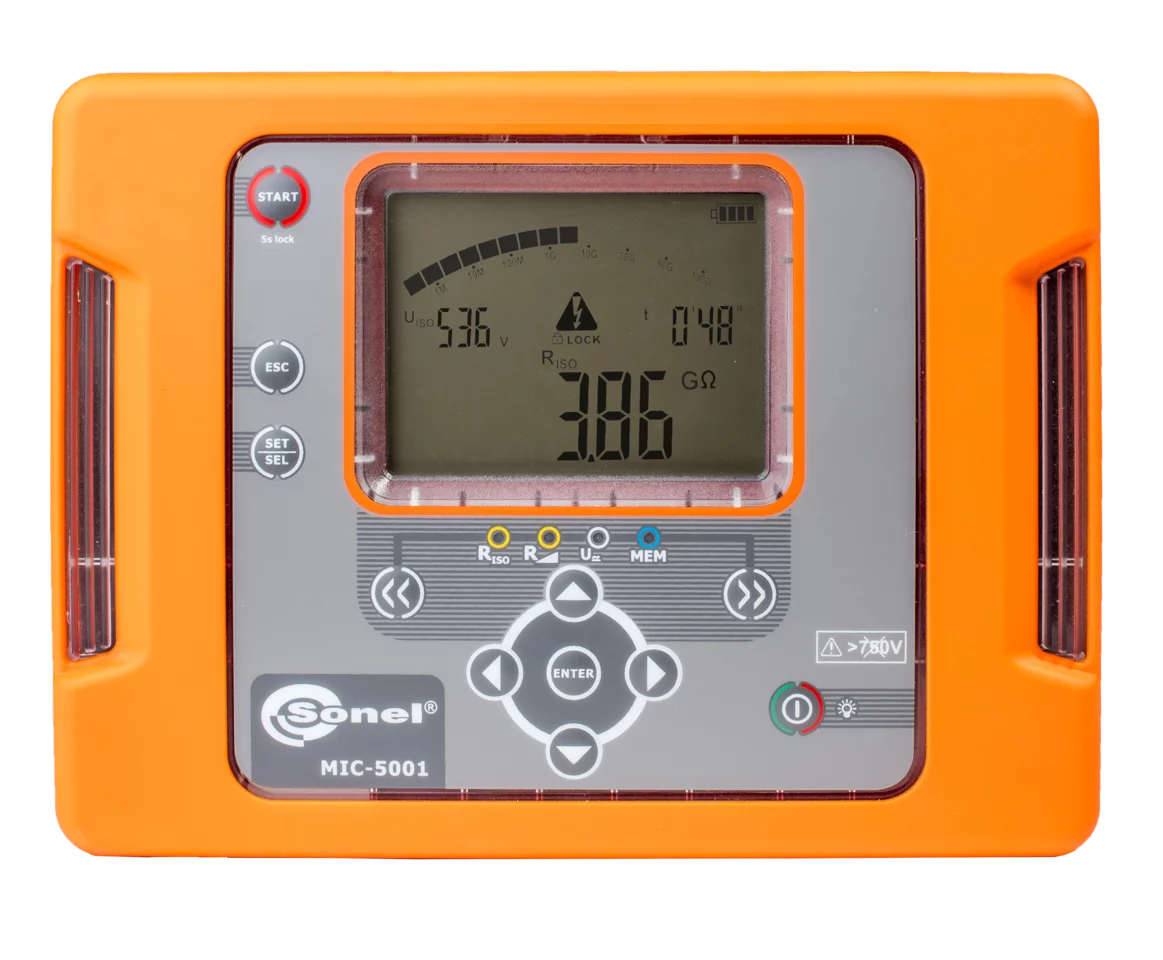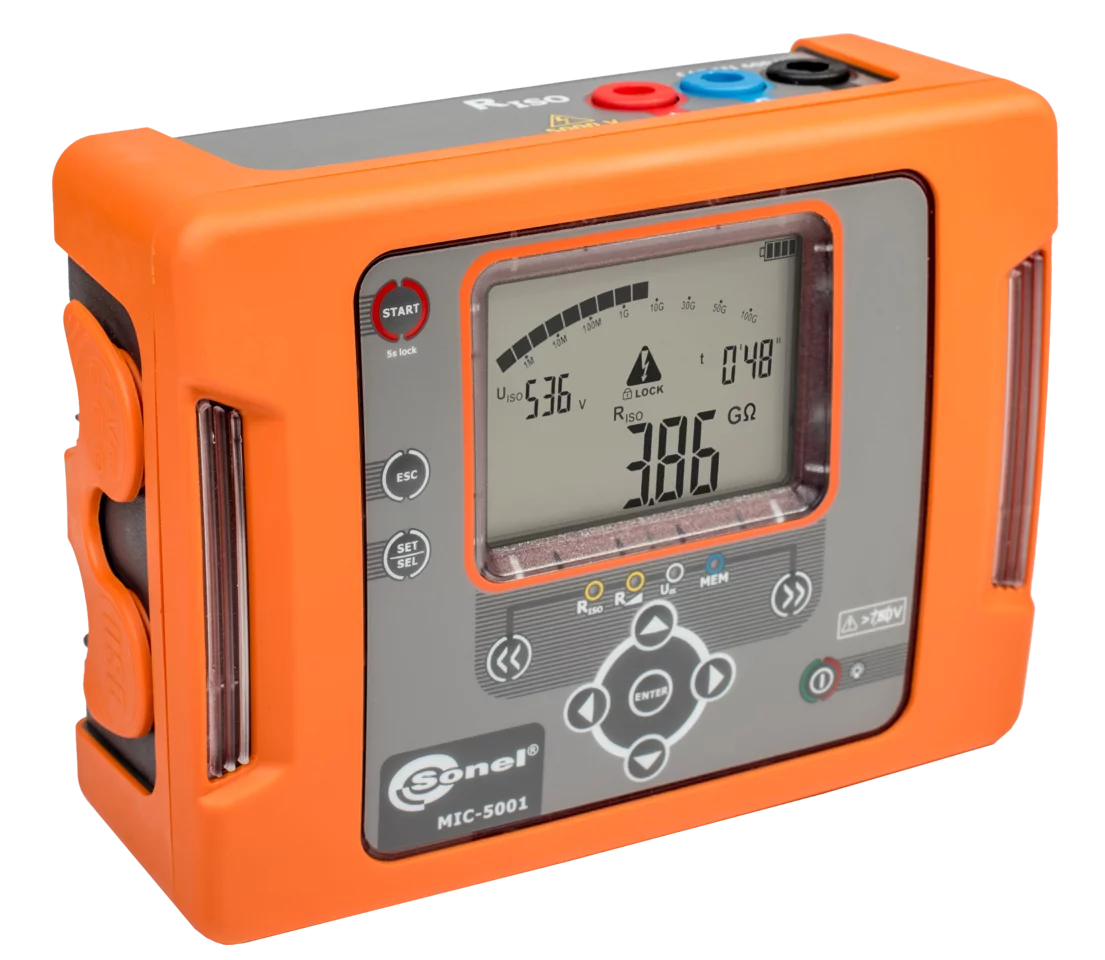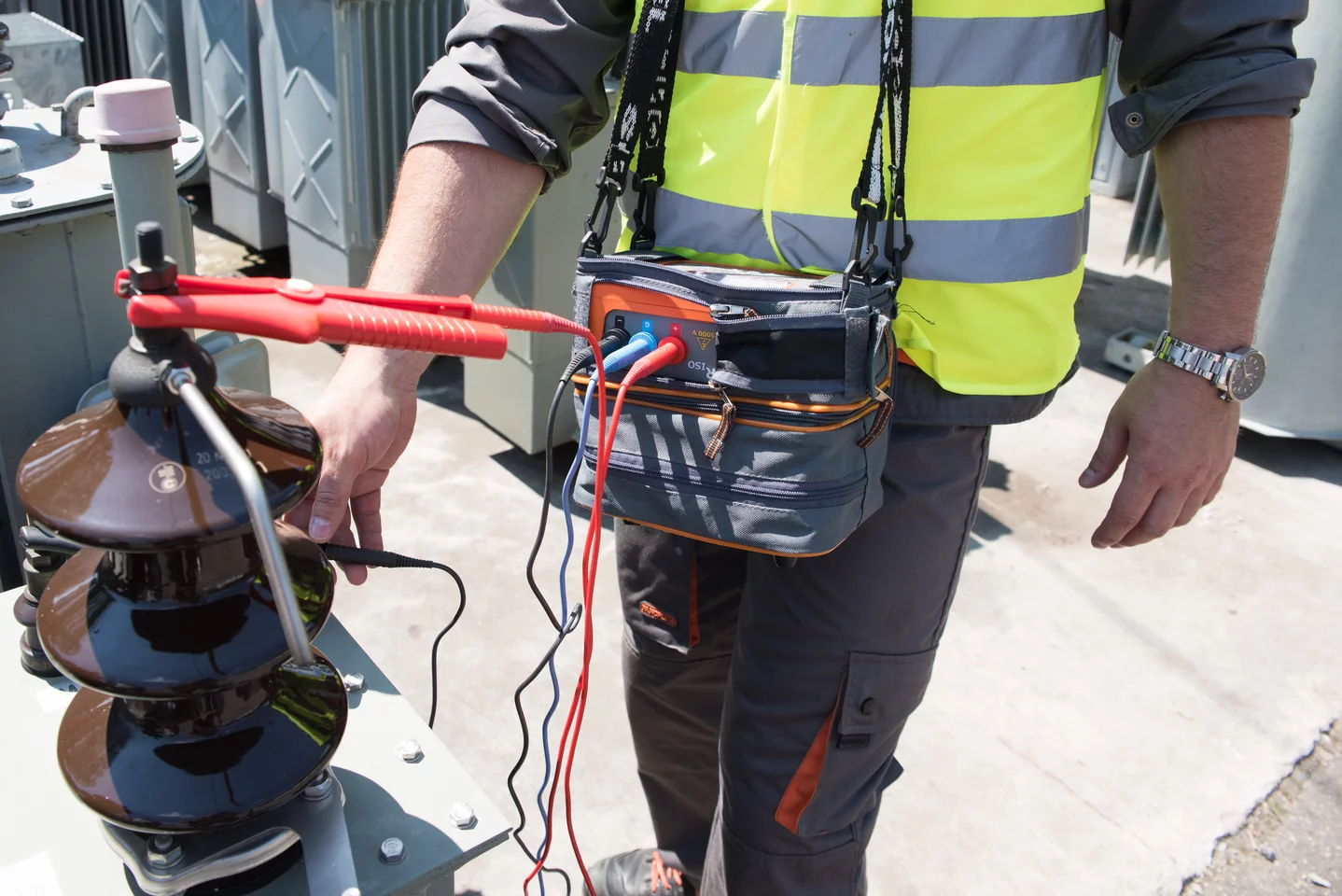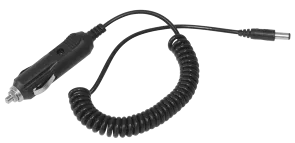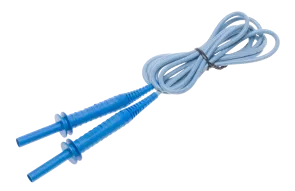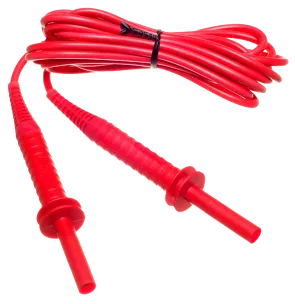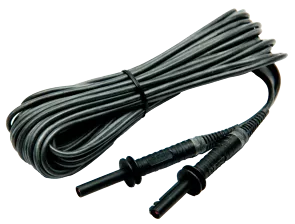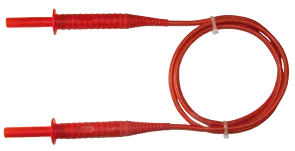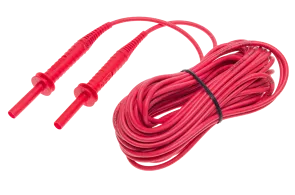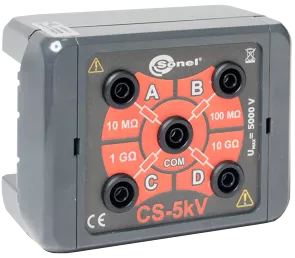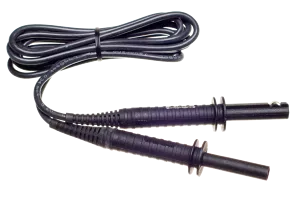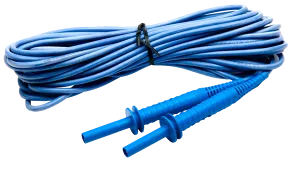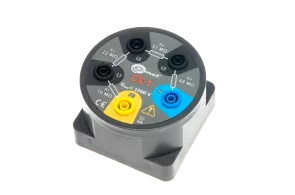Opis
Dane techniczne
Akcesoria w zestawie
Akcesoria dodatkowe
Pliki do pobrania
Zmierz rezystancję izolacji do 5 TΩ
Funkcjonalny miernik rezystancji izolacji Sonel MIC-5001 to niezawodne narzędzie do mierzenia rezystancji izolacji do 5 TΩ. Ze względu na świetne parametry znajduje wiele zastosowań, między innymi w przemyśle, kolejnictwie oraz w budownictwie mieszkaniowym. Urządzenie łączy w sobie cały szereg zalet – jest poręczne, ma ergonomiczny kształt oraz solidną obudowę o wysokim poziomie ochrony. Dodatkowo charakteryzuje się niskim poborem energii z akumulatorów, a w razie niskiego poziomu energii możliwe jest ich doładowanie nawet w trakcie wykonywanych pomiarów.
Cechy produktu
- napięcie pomiarowe wybierane z zakresu 50…500 V, wybierane skokowo co 50 V, i z zakresu 500…5000 V, wybierane skokowo co 100 V
- ciągłe wskazanie mierzonej rezystancji izolacji lub prądu upływu
- samoczynne rozładowanie pojemności mierzonego obiektu po zakończeniu pomiaru rezystancji izolacji
- akustyczne wyznaczanie pięciosekundowych odcinków czasu, ułatwiające zdjęcie charakterystyk czasowych
- odmierzanie czasu pomiaru T1, T2 i T3 dla pomiaru współczynnika absorpcji (DAR) i wskaźnika polaryzacji (PI)
- wskazania rzeczywistego napięcia pomiarowego podczas pomiaru
- zabezpieczenie przed pomiarem obiektów będących pod napięciem
- pomiar rezystancji izolacji metodą dwu- oraz trójprzewodową
- pomiar rezystancji izolacji metodą RampTest oraz pomiar napięcia przebicia z prędkością narostu do ~1 kV/s
- pomiar napięć stałych i przemiennych w zakresie 0...750 V
- pamięć 990 komórek (11880 wpisów), przesył danych do komputera poprzez kabel USB
- zasilanie akumulatorowe
- przyrząd spełnia wymagania normy PN-EN 61557
- możliwość zasilenia i ładowania miernika z zewnętrznego zasilacza lub gniazda zapalniczki samochodowej
Zastosowanie
Miernik rezystancji izolacji o regulowanym napięciu pomiarowym – aż do 5 kV. Jest doskonałym narzędziem do prowadzenia oceny stanu izolacji elektrycznej w budownictwie mieszkaniowym, przemyśle, kolejnictwie oraz innych obiektach ogólnego przeznaczenia. Z uwagi na swoje parametry, niski pobór energii z akumulatorów i możliwość ich doładowania w trakcie trwania pomiarów, poręczność oraz wysoki stopień szczelności obudowy - świetnie wpisuje się w potrzeby służb utrzymania ruchu, testujących silniki, kable, oświetlenie uliczne czy przy budowie i konserwacji instalacji fotowoltaicznych. Miernik jest godny polecenia instalatorom sieci telekomunikacyjnych i elektroenergetycznych, gdzie wymaga się sprawdzenia odporności osłony/powłoki izolacyjnej kabli (UN ≤ 30 kV) na działanie napięcia 5 kV w czasie 5 minut.
Cechy wyróżniające
Przyrząd umożliwia zmierzenie rezystancji izolacji z regulowanym napięciem pomiarowym do 5000 V. W przypadku badań kabli samoczynnie rozładuje ich pojemność z chwilą zakończenia pomiaru.
MIC-5001 pozwoli użytkownikowi na określenie rezystancji izolacji za pomocą napięcia narastającego liniowo, o stromości blisko 1 kV/s, zgodnie ze standardem EEE Std 95TM-2002. Funkcjonalność ta nosi nazwę RampTest.
W przeciwieństwie do podania maksymalnego napięcia pomiarowego, podanie go w sposób powolny i płynny nie naraża izolacji na nagły „stres elektryczny”. W trakcie tego procesu mogą ujawnić się wady nie do zaobserwowania w klasycznym pomiarze rezystancji RISO. Jeżeli badana izolacja jest osłabiona lub wadliwa, RampTest pozwala wyznaczyć maksymalne napięcie, jakie wytrzyma. Ponadto funkcjonalność szczególnie przydaje się w testowaniu maszyn wirujących czy ograniczników przepięć.
Miernik posiada wbudowany woltomierz napięć stałych oraz zmiennych w zakresie do 750 V. Obszerna pamięć przyrządu pozwala zapisać i przesłać do komputera blisko 12 tysięcy pomiarów. Dzięki oprogramowaniu Sonel Reader, dostępnym na stronie Producenta, można analizować zabrane wyniki pomiarowe oraz prezentować je w formie wykresu – np. wartości rezystancji lub prądu w funkcji czasu.
Możliwości urządzenia
Niewątpliwą zaletą przyrządu jest fakt dostatecznie długiej pracy na jednym ładowaniu akumulatorów. Elektrycy wykonujący badania na obiektach powtarzalnych i w krótkich odstępach czasu nie muszą się martwić, że miernik rozładuje się przed zakończeniem pracy. Ponadto w trakcie prac pomiarowych użytkownik może go doładowywać z zewnętrznego źródła zasilania, np. powerbanku 12 V/2 Ah.
